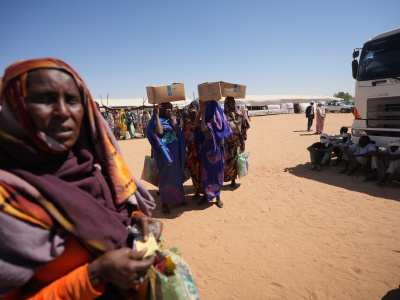
Making migration beneficial to Europe and Africa
Background Migration is increasingly becoming a hot topic for Africa-Europe engagement, particularly in the light of increased irregular migration to Europe from Africa in the recent years. Despite having started several processes to jointly deal with migration, more consistently since 2007, there are still great differences in understanding of the issue, priorities and how to best address challenges and opportunities of migration between Europe and Africa. These differences exist not only between the two continents but they also emerge between countries depending on whether they are countries of origin, transit or recipient. This may be a challenge for a successful outcome and implementation of the planned EU-Africa Summit on migration to be held in Valletta, Malta on 11 and 12 November 2015. Seminar In an effort to contribute towards a successful outcome of the Valletta Summit the Friedrich-Ebert-Stiftung (FES) the Southern African Liaison Office (SALO) and European Centre for Development Policy Management (ECDPM) co-hosted a pre-summit seminar in Addis Ababa on the 21st of October 2015. The seminar brought together relevant representatives from the African Union (AU), the EU Delegation to the AU, Representatives of European and African states, UN organisations, experts and civil society organisations to discuss this topic in an informal and constructive manner. This seminar report provides a summary of key outcomes and recommendations from the discussions. It does not represent the views of co-hosting organisations. Key messages
You can see more of ECDPM's work on Migration and Development at our Dossier: Linking migration to development See this event in our 'Events organised or attended by ECDPM' Image courtesy of illureh on iStock and Timo Lowinger
- The current refugee crisis receives different levels of attention and urgency on the two continents. While migration and the refugee crisis are high up on the European agenda, it has not received a comparable level of attention in Africa.
- The beneficial aspects of migration and mobility to development are largely absent from the dominant political discourses. Europe’s immediate reaction to the refugee crisis is mostly dominated by actions to curb mobility of irregular migrants through tightening border controls, return and readmission programs and shows a tendency towards a regression to the narrow securitisation approach.
- On its part, Africa, or the AU and the Regional Economic Communities (REC) respectively, is at least on paper working towards free movement of persons. However, African countries are themselves struggling with the implementation of free movement of people and cooperation in this regard. Hence, there is sometimes a contradiction between Africa’s push for regional economic integration and the restrictions of people’s movement.
You can see more of ECDPM's work on Migration and Development at our Dossier: Linking migration to development See this event in our 'Events organised or attended by ECDPM' Image courtesy of illureh on iStock and Timo Lowinger


